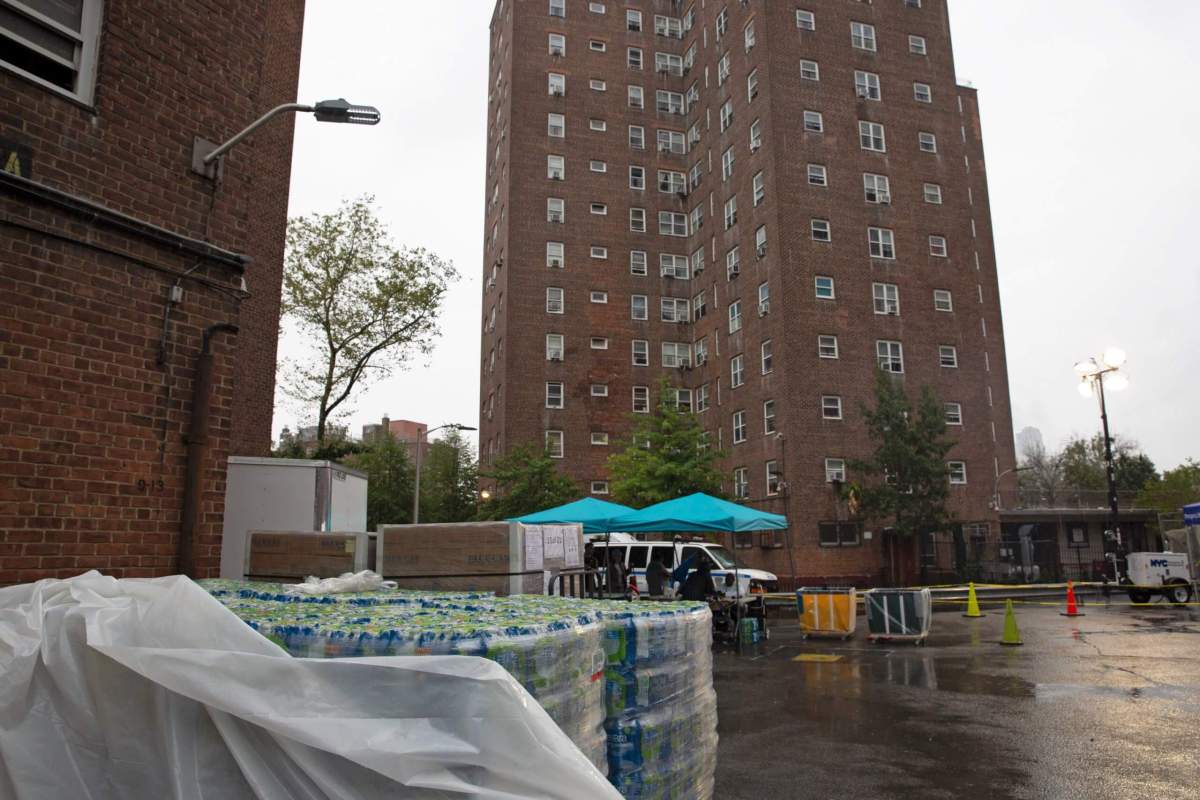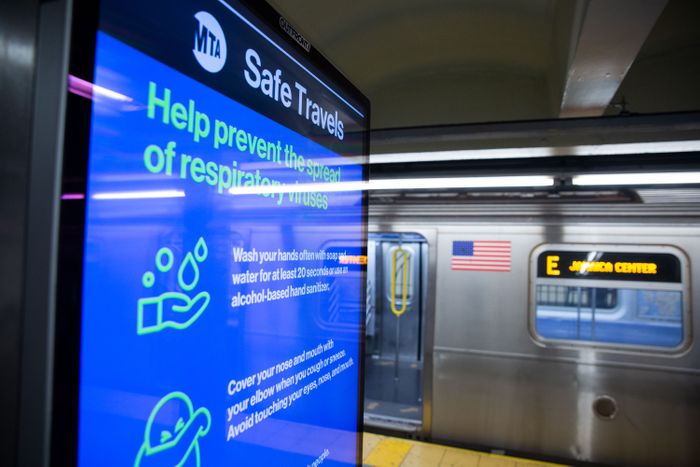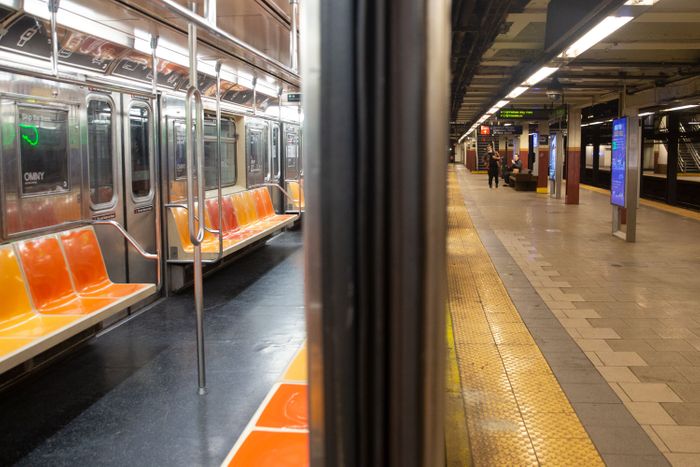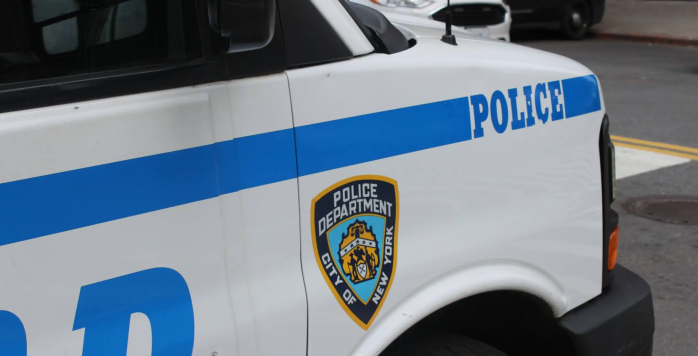This article was originally published on by THE CITY
Weeks before public housing residents endured a week of uncertainty and fear over an arsenic scare at the Jacob Riis Houses on the Lower East Side, trouble lurked within the basement of Building 11.
A pump that was supposed to keep fresh water always flowing into a 20,000 gallon rooftop tank had stopped functioning properly in mid-July, greatly hampering the tenants’ regular supply of fresh water. And NYCHA staff didn’t have a clue.
For two weeks before NYCHA realized what was going on and during the two additional weeks it took to fix it, the number of resident complaints to NYCHA’s command center about cloudy water in Building 11 grew from a trickle to a flood.
Tenants spoke of milky water spilling from kitchen taps. Some claimed the water smelled like paint. From mid-July to mid-August, when the pump was finally replaced, NYCHA fielded more than 80 complaints from that one building.
This maintenance failure has now emerged as potentially a key explanation for the debacle that followed.
Responding to the wave of complaints, NYCHA management began a series of tests to figure out what was tainting the tap water. That frantic effort ultimately led to the 2,600 tenants of Riis Houses living for eight days fearing the water they’d been drinking for years.
First, late on the Friday before the Labor Day weekend, NYCHA and Mayor Eric Adams announced that tests had detected arsenic in the water — only after THE CITY asked questions about it. That night they advised residents to stop drinking and cooking with the water until the system could be flushed out and retested, and Adams himself showed up to hand out bottled water.
Eight days later on Sept. 9, NYCHA and the mayor suddenly reversed course, announcing that the tests were actually flawed and that there was no contaminant to fear. Soon after they lifted the water ban and claimed that all was good to go. Tenants nonetheless still struggled with uncertainty and fear.
The saga is now the subject of multiple investigations, including one by the federal monitor who oversees NYCHA in partnership with the city Department of Investigation (DOI). Two City Council committees have also launched probes, and Adams has promised a top-down inquiry.
On Friday, the Council committees are scheduled to kick things off. For the first time, NYCHA and City Hall officials will be placed under oath to give sworn testimony. The joint hearing is being convened by Gale Brewer (D-Manhattan), chair of the Oversight and Investigations Committee, and Alexa Aviles (D-Brooklyn), who heads the public housing committee.
Last week, Brewer and Aviles demanded that NYCHA hand over a trove of documents, including emails and internal communications related to the water testing at Riis. That included the total number of water quality complaints at Riis from May 1 through last week, along with water issue complaints at all NYCHA developments from 2017 through last week.
/cdn.vox-cdn.com/uploads/chorus_asset/file/24038661/092022_nycha_hearing_aviles_1.jpg)
As of Thursday, they’d received much of what they’d requested, including what Aviles aide James Neimesiter described as “a timeline of complaints received and logged in” to NYCHA’s internal system, as well as all test results conducted by city agencies and vendors at Riis.
One key question remains unanswered: What happened in the weeks leading up to the arsenic scare at Riis?
Busted Pump
Investigators are zeroing in on the month from when the water pump at Building 11 went out to when it was finally fixed as the number of water quality complaints suddenly and exponentially jumped, two sources familiar with the ongoing probes have told THE CITY.
Two pumps serve Building 11 — one of which stopped functioning around July 15 or perhaps even earlier, the sources said. NYCHA staff did not discover the busted pump until July 29 and then did not get it fixed until Aug 15, the sources assert.
Meanwhile the number of complaints rose, with around 30 through the beginning of July and another 51 through the date the pump was replaced.
NYCHA informed elected officials about the pump issue early this week, including Assemblymember Harvey Epstein, whose Lower Manhattan district includes Riis and several other NYCHA developments. On Thursday, Epstein told THE CITY he hopes the Council hearing Friday will begin to shed light on what happened in Building 11.
“The value of the hearing is to explore what happened, how [the pump] broke and what NYCHA did in response,” he said.
NYCHA management did not respond to a list of written questions from THE CITY about the pump on Thursday, nor would they discuss the protocols for inspecting and cleaning the 220 water tanks that serve developments across NYCHA’s portfolio.
The tank in question was last inspected Nov. 22, 2021, and passed, according to what NYCHA told the city Department of Health and Mental Hygiene, which requires all landlords to self-report this information.
In June, NYCHA staff performed an annual cleanup on the tank, draining out all the water, scrubbing down the insides, and then refilling it, the sources said. A measured portion of chlorine was then mixed in to sanitize the tank.
NYCHA management declined to say if personnel checked the condition of the water pump during the annual cleaning, or explain why it took so long to discover the problem and then fix it.
Sandy’s Legacy
There’s another potential contributor to water quality problems: plumbing and other systems at Riis are still getting upgrades as part of the decade-long response to superstorm Sandy.
Sandy did serious damage to Riis and several other NYCHA properties that hug the FDR Drive along the East River. More than $3 billion in federal funds was allocated to NYCHA to upgrade damaged developments citywide and make them flood-resistant should another deluge occur.
Almost 10 years after the storm slammed New York City on Oct. 29, 2012, the resiliency upgrade is still underway at Riis.
On July 22, for example, the city Department of Buildings (DOB) approved a plumbing permit for the “proposed incorporation of emergency power generators” in Building 11. The permit describes the work involved as “renovation of building systems damaged by Hurricane Sandy, replacement of damaged equipment in the same location with similar in kind equipment.”
Late on Wednesday, city building inspectors discovered yet another issue: problems with the foundation of another Riis address, 178 Avenue D, known as Building 3.
DOB issued an emergency order requiring that NYCHA immediately perform “work to stabilize the support columns in crawl space” of that building.
The inspectors apparently felt the building was safe enough not to issue a vacate order, but neither DOB nor NYCHA would discuss the situation when queried by THE CITY Thursday.
THE CITY is an independent, nonprofit news outlet dedicated to hard-hitting reporting that serves the people of New York.



















